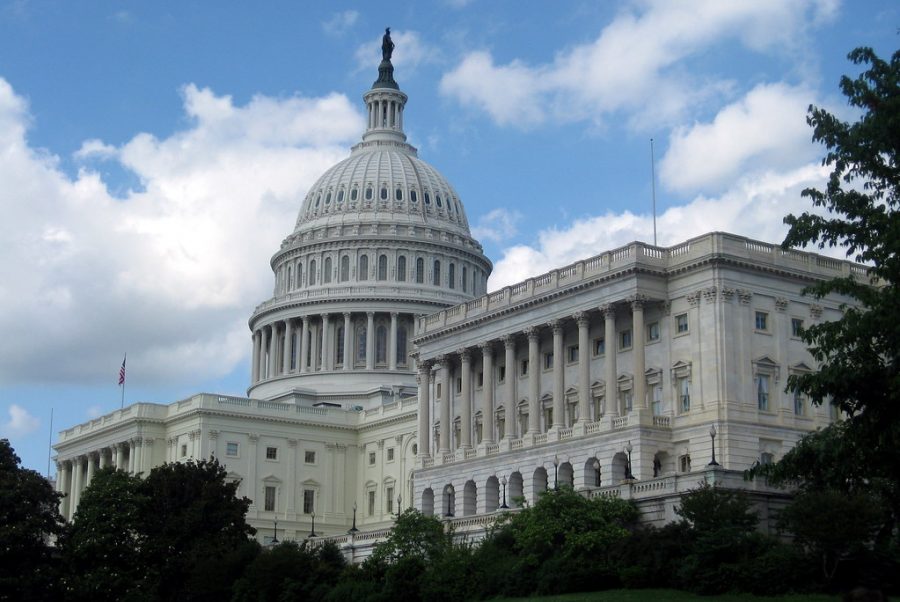The New Voting Rights Era of the US
September 23, 2021
Hopefully I’m not alone when I say accusations of voter fraud and election security of the 2020 Presidential Election still haunt me to this day. And I’m pretty sure it’s on politicians in DC’s mind, considering the bills circulating in Congress right now.
In 2019, a bill called the For the People Act (H.R.1) was introduced on behalf of the newly elected Democratic House majority. The bill aimed to fix partisan gerrymandering and expand voting rights significantly. Despite quickly passing the House, it was blocked by the Republican majority in the Senate led by Mitch McConnell.
However, due to Joe Biden’s presidential win in 2020, and Democrats taking the Senate, thanks to Georgia voters, the bill was reintroduced on March 3, 2021. Again it quickly passed the House, but as always, bills seem to find trouble in the Senate. Because the Senate is split 50-50 between the Democrats and Republicans, the GOP caucus was able to block the vote with a filibuster.
For those who don’t know what a filibuster is, it’s essentially a procedure in the Senate where a Senator can speak for as long as they wish on any chosen topic to attempt to block bills. The procedure has definitely proven to be counterproductive, and has once again blocked important legislation for the American people. Many Senate Dems have called on abolishing the filibuster, but many in the party have expressed hesitation including President Biden (a former Senator himself).
Some moderate Democrats, like Joe Manchin (D-WV), have even expressed hesitation to H.R.1 altogether because of its lack of voter ID initiative. Hence, we are brought to the present, when on September 15 Manchin and Amy Kloubachar’s (D-MN) Freedom to Vote was introduced.
The Freedom to Vote Act incorporates many of the same initiatives as H.R.1 including making Election Day a federal holiday, universal early voting, automatic registration, increased voter accessibility, and reformed election integrity.
The biggest difference is a universal voter ID for all voters. This point could also bring some Republicans across the aisle as they probably believe voter ID will crack down on voter fraud.
Now that Democrats have shown unity in their opinions on voting rights, it is integral we pass the Freedom to Vote Act. The very foundation of our democracy depends on voting, and no one’s right to vote should be stripped or inaccessible.
Thankfully, Illinois Senator Dick Durban agrees, with him being quoted in a press saying, “The right to vote is an American ideal. It shouldn’t be a partisan battle.”
The Washington Post Editorial staff argues, “Members of Congress should place loyalty to the nation’s system of government above their short-term partisan interests.”
In a time where America is as divided as ever, the right to vote and election reform is more important than our two-party system. Hopefully moderate Democrats, and Republican representatives will be able to put the country over partisan politics for the sake of their constituents.
Considering the Freedom to Vote Act will attempt to make a new federal holiday and make early voting universal across all states, the voter turnout in the US should overall be increased. The turnout for the 2020 election for the voter-eligible population was 66.7%, and the Freedom to Vote Act should help give this number a boost.
As most Loyola seniors and some juniors will be voting in the 2022 midterms, having increased voter accessibility is one of the easiest ways a large group of young people will vote. Historically voter turnout among young people has always been low. However, Congress pushing a new voting rights agenda can increase awareness of voting and the importance of it, motivating more young people to go out and vote.
Lili Forowycz, a Loyola senior in a political science class, is excited to vote in 2022. She also believes that voter integrity and accessibility is essential to our democracy. She elaborates, “I feel like the things we talk about in political science class definitely show how it’s harder for some people to get access to voting. Certain people have advantages over others when it comes to voting.”
For now, America still seems like it’s as divided as ever. The past decade has only further increased the polarization of our politics, and it seems like we’re at a point of no return. But hopefully we can put our differences aside, so all people can participate in a basic right of our democracy: voting.

